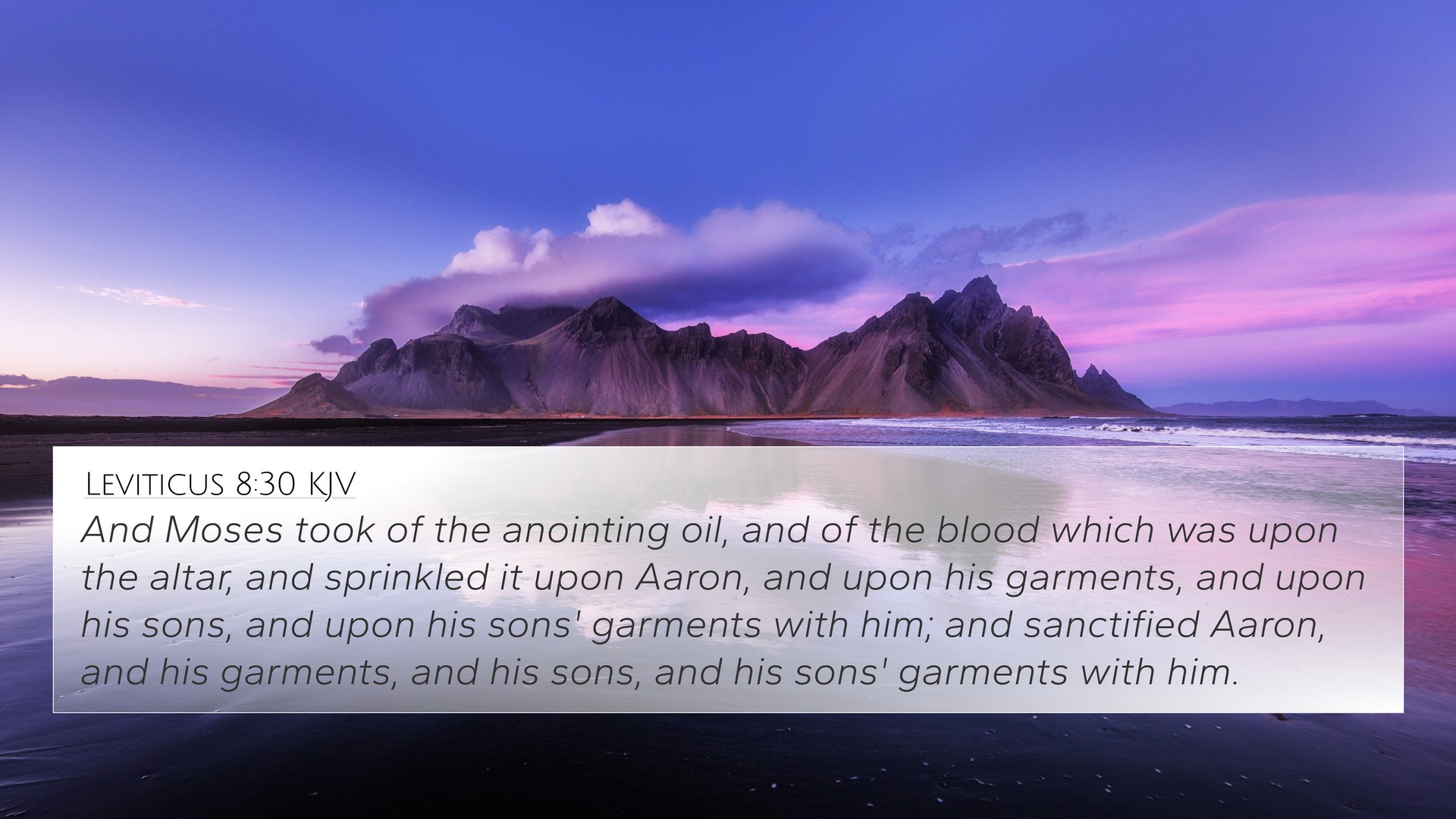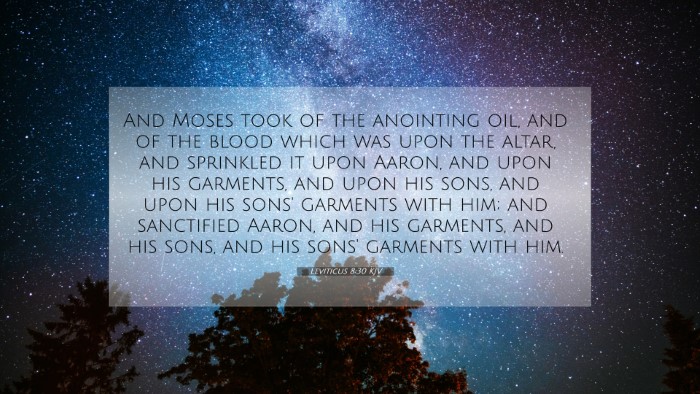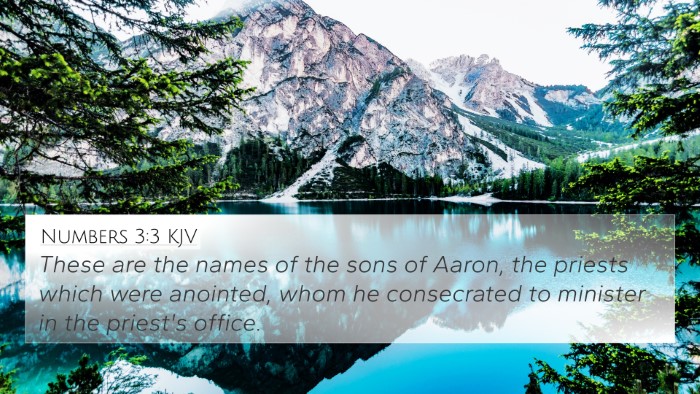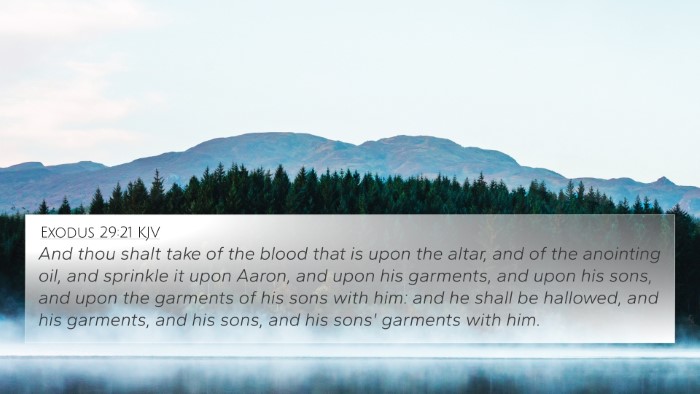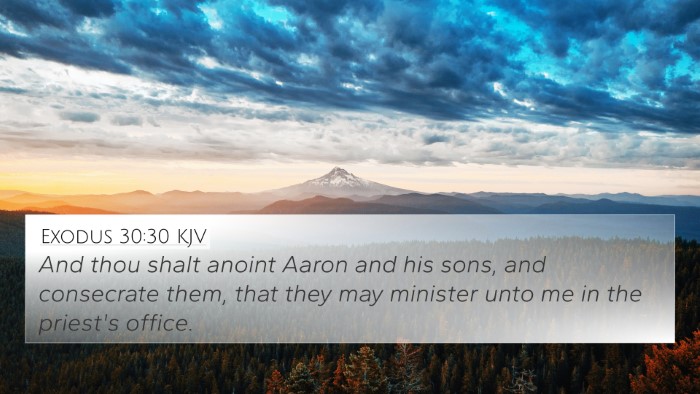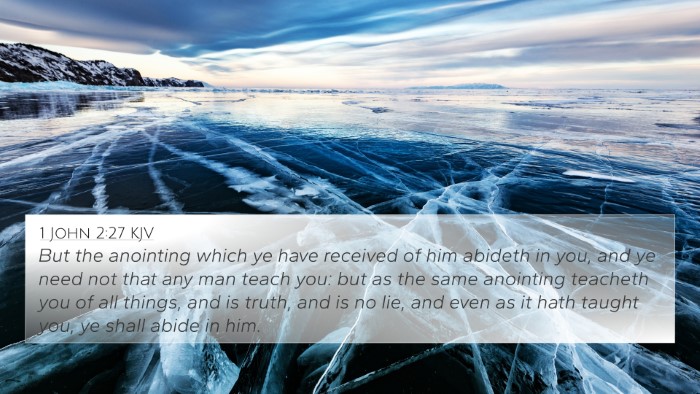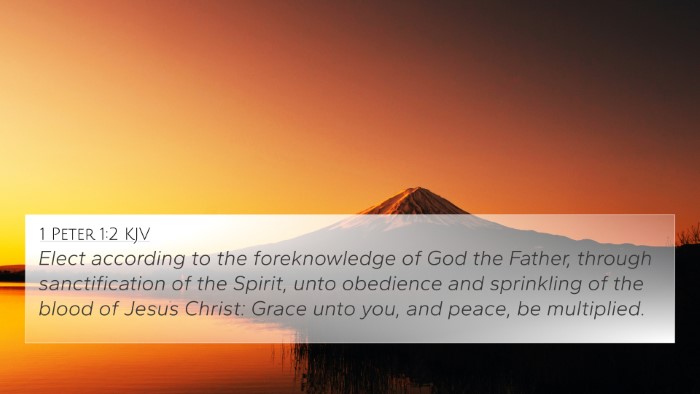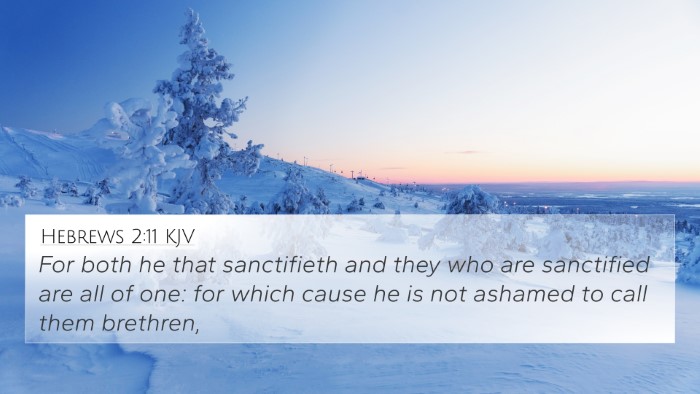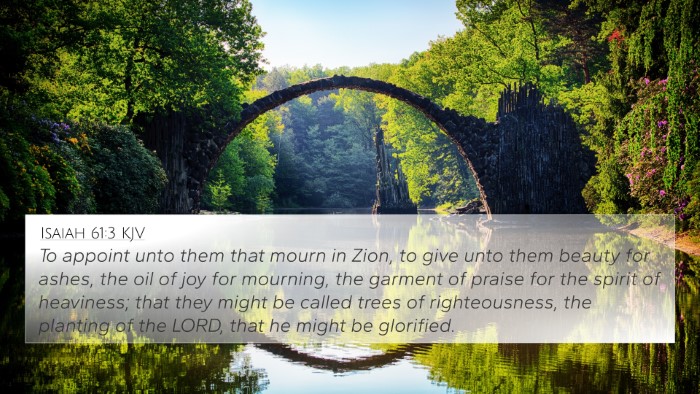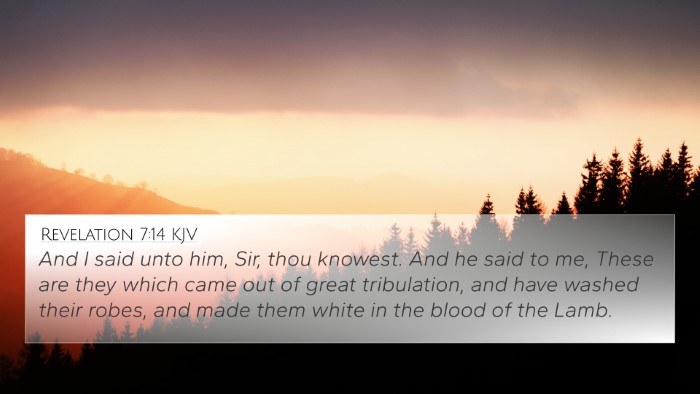Understanding Leviticus 8:30: A Comprehensive Analysis
Leviticus 8:30 states: "And Moses took of the anointing oil, and of the blood which was upon the altar, and sprinkled it upon Aaron, and upon his garments, and upon his sons, and upon the garments of his sons with him: and sanctified Aaron, and his garments, and his sons, and the garments of his sons with him." This verse is rich in significance and symbolism, particularly regarding the themes of anointing, sanctification, and priesthood.
Summary and Interpretation
This verse encapsulates key elements vital to the sacrificial system and the role of priests in ancient Israel. Here’s a detailed interpretation from various commentators:
-
Matthew Henry:
Henry emphasizes the significance of anointing, highlighting that the oil signifies the presence of the Holy Spirit. Moses' act of sprinkling blood and oil serves as a divine endorsement for Aaron and his sons, establishing their sacred roles as priests. This connection illustrates the ceremony's dual nature of purification and empowerment.
-
Albert Barnes:
Barnes notes that the ritual is critical for the consecration of the priests. He discusses how the blood, representing life and atonement, alongside the oil, symbolizes holiness and God’s approval, is essential for separating the priests for their duties in the tabernacle.
-
Adam Clarke:
Clarke provides insight into the importance of ceremony in establishing authority and spiritual status. He explains that this procedure not only sets Aaron and his sons apart from the people but also marks the start of their ministerial functions, highlighting a direct connection between the sacrifice and servitude to God.
Thematic Connections in Scripture
Leviticus 8:30 presents various themes that resonate throughout the Bible, tying in significant scriptural concepts of sanctification, priesthood, and the anointing of God:
- Exodus 29:21: Discusses the consecration of Aaron and his sons with blood and oil, linking it to Leviticus 8:30.
- Hebrews 9:22: Affirms that without shedding of blood, there is no remission, emphasizing the role of blood in consecration.
- 1 Peter 2:9: Describes believers as a royal priesthood, showing continuity between the Old Testament priests and the New Testament Church.
- Psalms 133:2: Refers to the anointing oil as a symbol of unity and blessing, echoing the act of anointing in Leviticus.
- Matthew 3:16-17: Illustrates Jesus’ baptism and anointing by the Holy Spirit, paralleling the anointing of Aaron.
- John 17:19: Jesus sets apart Himself for the sake of His disciples, similar to the setting apart of priests in Leviticus.
- Revelation 1:6: Proclaims that Jesus made believers to be a kingdom and priests, establishing a link back to the priestly order initiated in Leviticus.
Insights into Biblical Cross-Referencing
When examining Leviticus 8:30, it is vital to understand the broader thematic connections within the Bible. Utilizing cross-referencing can deepen understanding:
-
Tools for Bible Cross-Referencing:
- Use a Bible concordance to locate themes and related verses.
- Implement Bible chain references to explore inter-biblical dialogue.
- Engage with a cross-reference Bible study guide to enhance thematic understanding.
Practical Application of Cross-Referencing
To effectively find connections within the scriptures, consider:
- How to find cross-references in the Bible: Look for key terms and themes that are rooted in Leviticus 8:30.
- Identifying connections between the Old and New Testament: Draw parallels between priestly garments and Christ’s role as the High Priest.
- Detailed study of cross-references: Compare the significance of anointing across various scriptures.
Conclusions About Leviticus 8:30
In conclusion, Leviticus 8:30 provides crucial insight into the priesthood, the importance of anointing, and the sanctification process. By cross-referencing this verse with others in both the Old and New Testaments, readers can gain a holistic view of the themes of holiness, sacrifice, and divine appointment that resonate throughout scripture.
As you explore these themes, consider how they apply to your understanding of your relationship with God. Cross-referencing offers profound depth in study, leading to enriched spiritual insights.
